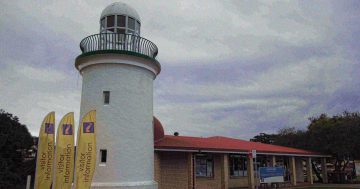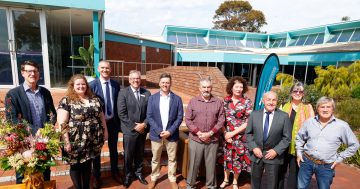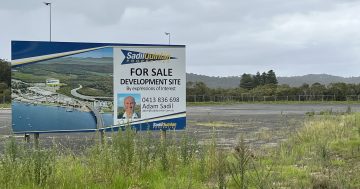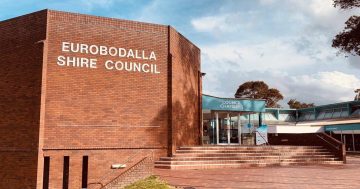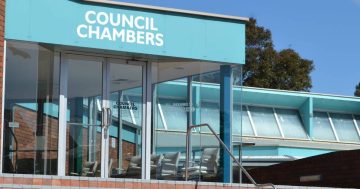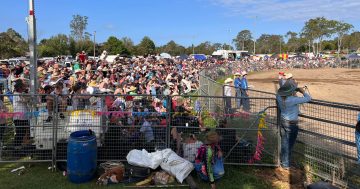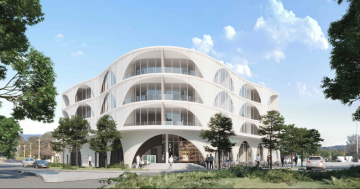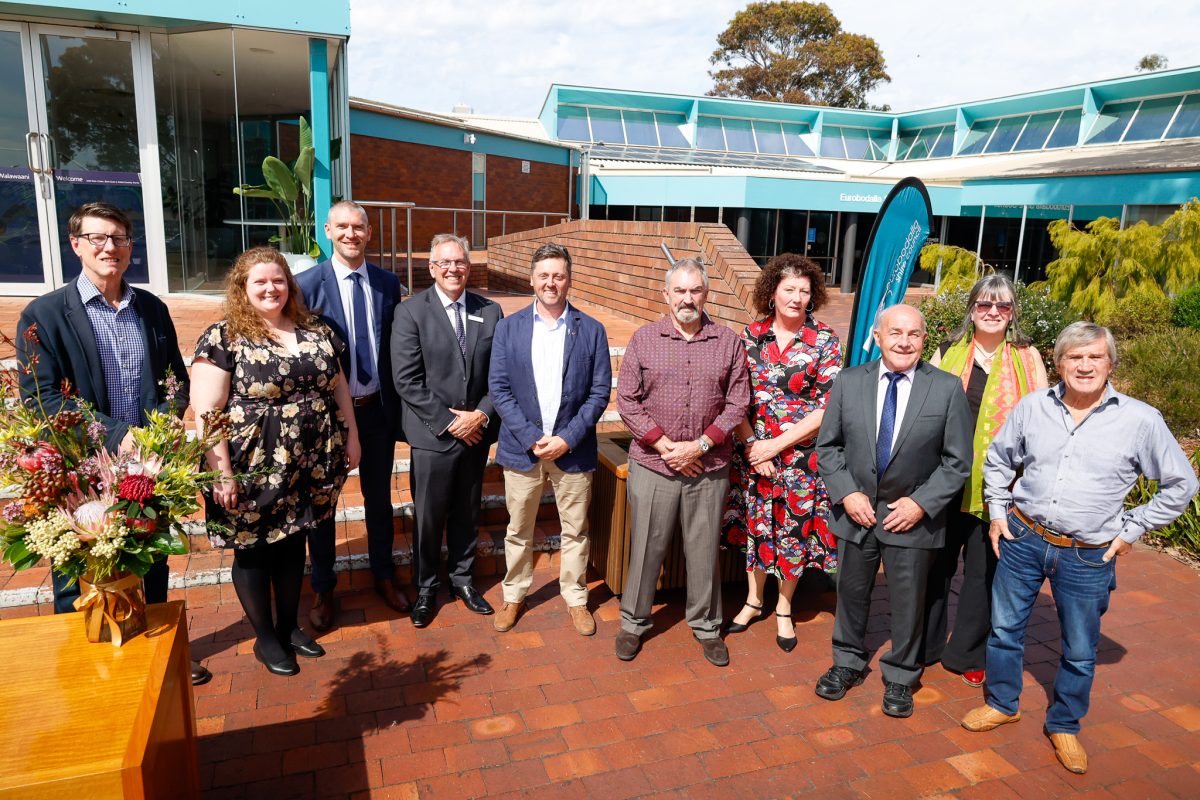
Eurobodalla Shire councillors Anthony Mayne and Amber Schutz, Mayor Mathew Hatcher, general manager Warwick Winn, and councillors Laurence Babington, Mick Johnson, Sharon Winslade, Phil Constable, Colleen Turner and Rob Pollock. Photo: Eurobodalla Shire Council.
A meaty agenda for Eurobodalla Shire Council’s regular meeting drew 14 people to speak in the public forum, leading to an almost five-hour-long meeting.
Six of the presenters on Tuesday (19 November) spoke about the long-running issue of vehicular access to Maloneys Beach. Four were in favour of reinstating access and two were opposed.
The track has deteriorated, which led councillors to ask if the vehicular access had to be in the same place.
When it came time to discuss the outcome of community consultation and a staff report that was instigated by Councillor Amber Schutz at the 29 October council meeting, Clr Schutz said access to the beach had been a valuable asset to the Maloneys Beach community, boaters, the elderly and people with a disability.
Councillor Rob Pollock said the track no longer provided safe access and proposed a new compressed gravel track. An amended motion that the council receive a report at the earliest convenience with a view to providing access to the immediate west of the existing toilet block was passed.
Three people spoke about the council’s draft housing strategy that was on the council meeting’s agenda to be endorsed and adopted as the current policy on housing supply. It is part of a suite of planning documents and investigations required by the NSW Government.
Rosie Toth, Frank Ross, representing Southcoast Health and Sustainability Alliance (SHASA), and Dr Brett Stevenson, a member of A Better Eurobodalla, said the report did not address affordable housing in any meaningful way, or sustainable building, and there was no reference to the council’s Climate Action Plan.
Dr Stevenson said most of the suggestions in the background report by Judith Stubbs had been ignored or overlooked. Ms Toth said the council could work with caravan parks to quickly provide more stable, long-term affordable accommodation.
Councillor Colleen Turner wanted to defer endorsing the draft housing strategy so there could be more detailed discussion and strategy around affordable housing. Councillor Sharon Winslade said it was possible to draw on models that other councils, particularly Bega Valley Shire Council, had developed around affordable housing.
Mayor Mat Hatcher said action was needed. “There are lots of opportunities for council and the next council to work on this. I just want to see us getting on with it,” he said. Clr Turner’s amended motion was defeated and the original motion was passed.
In a related issue, councillors voted to amend the Eurobodalla Local Environmental Plan 2012 (ELEP) to facilitate the Torrens title subdivision of existing or proposed dual occupancy in the R2 Low Density Residential Zone. Clr Schutz said the amendment “is a practical application of the ways council was working towards housing affordability”.
The motion that DA0518/24 for a two-building specialised retail premises at 3 Kings Highway, Batemans Bay, be approved was carried without discussion. The two buildings exceed the ELEP maximum building height of 10 metres by 13.4 per cent and 13.45 per cent. At the public forum, Joan Armstrong told councillors that the flora and fauna surveys undertaken were minimal.
In the public forum Trish Hellier and Peter Cormick expressed concern that the draft amended Code of Meeting Practice was being rushed. “There is no need to be pushing this issue just ahead of the holiday time,” Mr Cormick said. The document will be placed on public exhibition for 28 days and allow submissions for 42 days.
Bernie O’Neil, a member of A Better Eurobodalla, said the proposed changes “take us backwards”, notably ‘requiring’ instead of ‘encouraging’ speakers at the council’s public forums to provide a written copy of their address in advance. “That means councillors can be briefed. Best practice is to avoid that possibility,” Ms O’Neil said.
Jim Bright said neighbouring councils didn’t impose that obligation. “Staff should make the case,” Mr Bright said. “There is no information that explains or justifies the inclusion of this in the draft.”
Also on the agenda was the council’s submission to the Office of Local Government on the draft new framework for councillor conduct and meeting practices. The framework proposed banning councillor briefings that are not open to the public. In its submission the council said that proposal was unworkable.
Ms O’Neil and Mr Bright supported councillor briefings being opened to the public. “There has been a shift in thinking about transparency and openness in modern governance,” Ms O’Neil said.
Mr Bright said it would enable community members with particular expertise and background to fill in any gaps in the information that council staff provided. “It would make it harder for council staff to talk rubbish,” he said.







